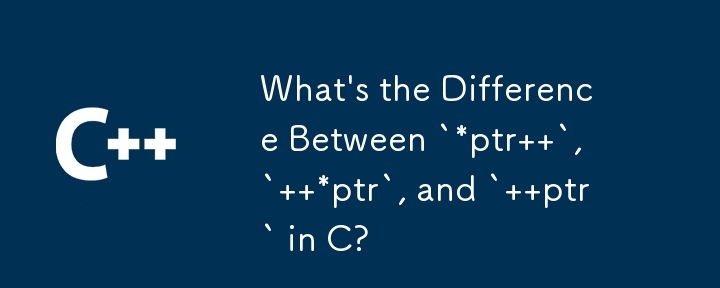

Understanding Pointer Expressions: ptr , ptr, and *ptr
In C programming, these three expressions are commonly used to manipulate pointers and the values they point to. Understanding their behavior is crucial for effectively working with pointers.
1. *ptr
2. * ptr
3. *ptr
Examples:
int arr[5] = {1, 2, 3, 4, 5};
int *ptr = arr;
printf("%d ", *ptr++); // Prints 1 and increments ptr to the second element
printf("%d ", *++ptr); // Increments ptr to the third element and prints 3
printf("%d\n", ++*ptr); // Increments the value at the third element and prints 4Output:
1 3 4
The above is the detailed content of What's the Difference Between `*ptr `, ` *ptr`, and ` ptr` in C?. For more information, please follow other related articles on the PHP Chinese website!
 How to deal with garbled Chinese characters in Linux
How to deal with garbled Chinese characters in Linux
 How to pass value to vue component
How to pass value to vue component
 Introduction to linux system classification
Introduction to linux system classification
 How to generate bin file using mdk
How to generate bin file using mdk
 How to open gff file
How to open gff file
 How to check port status with netstat
How to check port status with netstat
 What are the data conversion methods in golang?
What are the data conversion methods in golang?
 What is the inscription brc20
What is the inscription brc20




